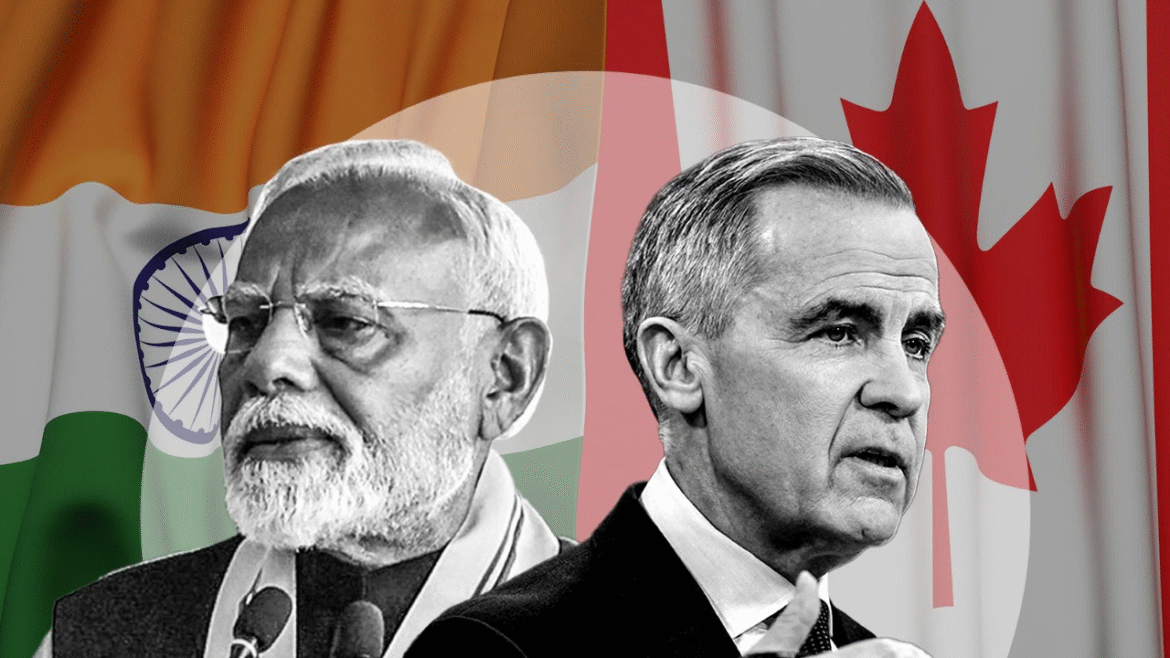AI Generated Summary
- In a scathing critique of Canada’s past approach to India, former Pentagon official and senior fellow at the American Enterprise Institute, Michael Rubin, has praised Prime Minister Mark Carney’s leadership for signaling a decisive shift in foreign policy—one that favors diplomacy and maturity over political theatrics.
- With Modi’s expected presence at the G7 Summit, and Carney signaling a willingness to reset bilateral ties, observers say Canada and India may be on the cusp of a diplomatic thaw.
- Rubin claimed these groups have little to no legitimacy in India’s Punjab or within the broader Sikh community in Canada and are often linked to tax fraud, organised crime, and terror financing.
In a scathing critique of Canada’s past approach to India, former Pentagon official and senior fellow at the American Enterprise Institute, Michael Rubin, has praised Prime Minister Mark Carney’s leadership for signaling a decisive shift in foreign policy—one that favors diplomacy and maturity over political theatrics.
Rubin’s comments, delivered in a recent interview with ANI, mark a sharp rebuke of former Prime Minister Justin Trudeau’s handling of Canada-India relations. “India is not a football to be kicked around. It is an ally to be embraced,” Rubin said, applauding Carney’s efforts to rebuild trust with New Delhi.
According to Rubin, Carney’s outreach to Indian Prime Minister Narendra Modi and his invitation to the upcoming G7 Summit, scheduled for June 15–17 in Canada, represent a strategic recalibration. “The fact that Prime Minister Modi accepted the invitation shows India has nothing to hide,” Rubin noted, emphasizing that this step underscores a willingness from both nations to move past a contentious chapter.
Breaking from Trudeau’s Shadow
Rubin’s harshest criticism was reserved for Trudeau’s foreign policy, which he accused of being driven by “virtue signalling and politics” rather than strategic interest. “Canada’s relationship with India under Justin Trudeau was not principled,” he said. “Trudeau was more concerned with appeasing radical Sikh extremists and playing domestic politics than engaging seriously with India.”
Rubin condemned Trudeau’s handling of the controversy surrounding Hardeep Singh Nijjar and the Khalistan movement—issues that contributed to a diplomatic freeze between Ottawa and New Delhi. “The grievances about Hardeep Singh Nijjar and the Khalistan movement were not real. They were exaggerations Trudeau amplified,” Rubin charged, suggesting the former Prime Minister used the issue to court support from radical factions at the expense of national and international security.
The Khalistan Question
The American security expert also addressed growing concerns about Khalistani extremism in Canada. Calling it a matter of national security, Rubin urged the Canadian government to take decisive action against such groups.
“It is essential for Canada to address the Khalistan movement head-on—to designate these extremists as terrorists, uproot their funding networks, and stigmatize them permanently,” he said. Rubin claimed these groups have little to no legitimacy in India’s Punjab or within the broader Sikh community in Canada and are often linked to tax fraud, organised crime, and terror financing.
“When you give haven to any terror group, ultimately, your interests are going to be subverted,” he warned, adding that both Pierre and Justin Trudeau “undermined Canada’s moral authority” by tolerating extremist rhetoric under the guise of free speech.
A New Diplomatic Chapter
In contrast to Trudeau, Rubin described Carney as “a much more serious person” who understands the complexities of geopolitics. “Carney was a banker before becoming Prime Minister. He understands the importance of India,” Rubin said. “He wants to restore maturity to the relationship.”
Rubin emphasized that India, under Modi’s leadership, is open to honest dialogue. But that dialogue, he warned, must be reciprocal. “If you’re going to have a serious law enforcement conversation, it’s got to be two-way. That means talking about illegal immigration, terror finance, and extremist networks operating in Canada.”
With Modi’s expected presence at the G7 Summit, and Carney signaling a willingness to reset bilateral ties, observers say Canada and India may be on the cusp of a diplomatic thaw. Whether that momentum continues will depend largely on how seriously Ottawa addresses the security concerns that have long dogged the relationship.
As Rubin concluded, “Canada now needs to demonstrate its good faith. The ball is in its court.”




